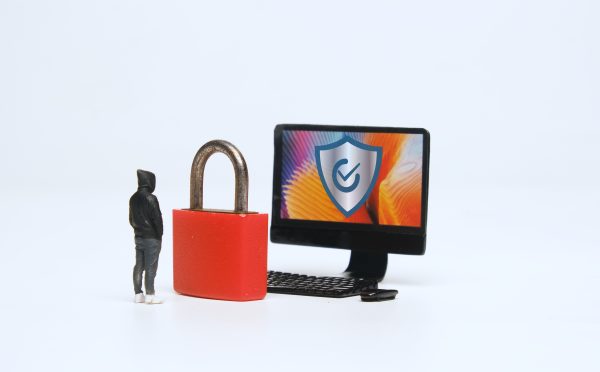According to a survey by ConnectSolutions, remote work can boost productivity by as much as 77%. This remote work effectiveness has transformed industries worldwide, and civil engineering is no exception. Managing remote civil engineering teams presents unique challenges and opportunities that require thoughtful strategies to ensure productivity, collaboration, and quality work. This blog explores effective management practices for remote civil engineering teams, helping firms leverage the benefits of remote work while overcoming its inherent challenges.
Understanding the Remote Work Landscape in Civil Engineering

Remote work in civil engineering has been accelerated by technological advancements and the need for flexible work arrangements. Therefore, remote civil engineers can now collaborate on projects from different geographical locations, using digital tools to bridge the distance. Moreover, this shift has proven beneficial in terms of cost savings, access to a broader talent pool, and increased employee satisfaction. However, it also requires a new approach to management to maintain efficiency and project success.
BizForce, a leading staffing company for architecture and engineering firms, offers highly skilled remote civil engineers who can collaborate on projects from various geographical locations, utilizing cutting-edge digital tools to bridge the distance. With BizForce, you gain the flexibility needed to adapt to these changes while maintaining efficiency and ensuring project success.
Key Strategies for Managing Remote Civil Engineering Teams
-
Utilize Advanced Collaboration Tools
Effective communication and collaboration are crucial for civil engineering remote teams. Therefore, advanced tools and software can facilitate seamless interaction among team members.
Examples of Essential Tools:
- Project Management Software: Tools like Asana, Trello, and Microsoft Project help manage tasks, timelines, and project progress.
- Communication Platforms: Slack, Microsoft Teams, and Zoom enable real-time communication and video conferencing.
- Design and Modeling Software: AutoCAD, Revit, and BIM 360 allow engineers to collaborate on designs and models in real-time.
- Implementation Tip: Ensure all civil engineering team members are trained in using these tools and establish clear protocols for their use to maintain consistency and efficiency.
-
Establish Clear Communication Channels
Furthermore, clear and consistent communication is vital for remote civil engineering teams. Therefore, establishing regular check-ins and using multiple communication channels can help keep everyone on the same page.
Best Practices:
- Regular Meetings: Schedule daily or weekly meetings to discuss project updates, challenges, and milestones.
- Open Channels: Moreover, create open communication channels where civil engineering team members can easily ask questions and share information.
- Documentation: Additionally, maintain comprehensive documentation of project plans, decisions, and progress accessible to all team members.
- Implementation Tip: Encourage a culture of openness where civil engineering team members feel comfortable sharing their ideas and concerns.
-
Define Roles and Responsibilities Clearly
Remote work can sometimes lead to confusion about roles and responsibilities. Therefore, clearly define these aspects to help avoid misunderstandings and ensure everyone knows their tasks.
Steps to Define Roles:
- Detailed Job Descriptions: For instance, provide clear job descriptions and expectations for each civil engineering team member.
- Task Assignments: Additionally, use project management tools to assign tasks and set deadlines.
- Accountability: Establish accountability by regularly reviewing task completion and performance.
- Implementation Tip: Regularly update roles and responsibilities as civil engineering projects evolve to reflect any changes in scope or team composition.
-
Foster a Collaborative Team Culture
In addition, building a strong team culture is essential for remote teams. Fostering collaboration and a sense of belonging can lead to better teamwork and project outcomes.
Ways to Build Culture:
- Team Building Activities: Organize virtual team-building activities to strengthen relationships.
- Recognition and Rewards: Recognize and reward civil engineering team members’ efforts and achievements.
- Inclusive Environment: Additionally, encourage inclusivity and ensure all team members feel valued and heard.
- Implementation Tip: Use collaboration tools to create informal channels where team members can share non-work-related interests and bond.
-
Leverage Technology for Remote Site Inspections
Furthermore, site inspections are a critical part of civil engineering projects. Therefore, remote teams should leverage technology to conduct virtual site inspections effectively.
Technological Solutions:
- Drones: Use drones for aerial inspections and to capture detailed site images and videos.
- 360-Degree Cameras: Implement 360-degree cameras for comprehensive site walkthroughs.
- Virtual Reality (VR): Utilize VR to create immersive site inspection experiences.
- Implementation Tip: Ensure civil engineering team members are trained in using these technologies and integrate the collected data into project management systems.
-
Implement Robust Project Management Practices
Moreover, strong project management is the backbone of successful remote civil engineering teams. Therefore, adopt robust practices to ensure projects stay on track and meet deadlines.
Key Practices:
- Detailed Project Plans: Develop detailed project plans with clear milestones, timelines, and deliverables.
- Risk Management: Additionally, identify potential risks and develop mitigation strategies.
- Performance Monitoring: Subsequently, monitor project performance and adjust plans as needed.
- Implementation Tip: Use project management software to track progress and ensure all civil engineering team members are aware of their tasks and deadlines.
-
Ensure Data Security and Compliance

In addition, data security and compliance are paramount when managing remote teams. Protecting sensitive project information and adhering to industry regulations is crucial.
Security Measures:
- Secure Communication Tools: For instance, use encrypted communication tools and secure file-sharing platforms.
- Access Control: Implement strict access control measures to protect sensitive data.
- Frequent Assessments: Perform regular security audits to detect and mitigate vulnerabilities.
- Implementation Tip: Educate civil engineering team members on data security best practices and the importance of compliance with industry standards.
-
Promote Continuous Learning and Development
Investing in the continuous learning and development of remote team members ensures they stay updated with the latest industry trends and technologies.
Development Strategies:
- Online Training: Provide access to online courses and certifications relevant to civil engineering.
- Workshops and Webinars: Organize virtual workshops and webinars on emerging technologies and best practices.
- Mentorship Programs: Establish mentorship programs to support professional growth and knowledge sharing.
- Implementation Tip: Encourage team members to pursue ongoing education and provide incentives for completing training programs.
-
Monitor Performance and Provide Feedback

Regular performance monitoring and feedback are essential for maintaining high standards and continuous improvement.
Performance Management:
- KPIs: Establish key performance indicators (KPIs) to measure individual and team performance.
- Routine Evaluations: Perform regular performance reviews and offer constructive feedback.
- Goal Setting: Set clear, achievable goals for team members and track their progress.
- Implementation Tip: Use performance management software to streamline the review process and keep records of feedback and improvements.
-
Adapt and Iterate
Lastly, prepare to adapt and iterate on your management practices based on feedback and changing circumstances.
Adaptive Practices:
- Feedback Loops: Establish regular feedback loops to gather input from team members on what’s working and what’s not.
- Continuous Improvement: For instance, implement changes based on feedback and continuously seek ways to improve remote work processes.
- Flexibility: Additionally, remain flexible and open to new tools, technologies, and methodologies that can enhance remote team management.
- Implementation Tip: Regularly review and update remote work policies and procedures to reflect the latest best practices and team needs.
Conclusion
Effectively managing remote civil engineering teams requires a combination of advanced tools, clear communication, robust project management, and a strong team culture. By leveraging technology, defining roles clearly, fostering collaboration, and promoting continuous learning, civil engineering firms can overcome the challenges of remote work and achieve successful project outcomes. Without a doubt, embracing these strategies will ensure that remote teams remain productive, engaged, and capable of delivering high-quality work.
Contact BizForce today to discover how our flexible staffing solutions can help your firm embrace the future of civil engineering and achieve unparalleled success. Click here.
